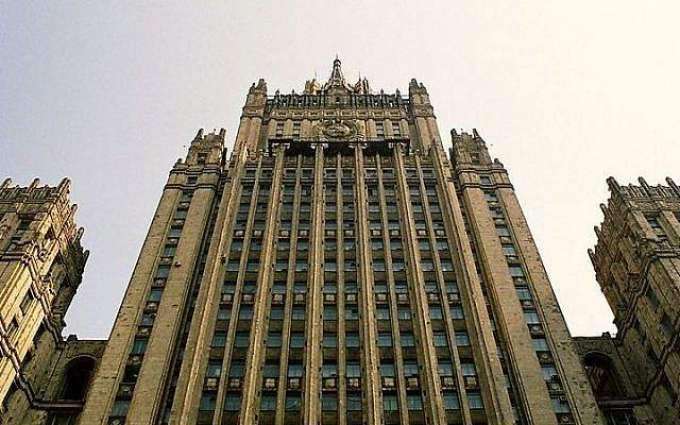Western countries are trying to push Russian media out of their information space, including by means of online algorithms and legislation, a senior official with the Russian Foreign Ministry, Maxim Buyakevich, said on Tuesday at a roundtable for Safer Internet Day
MOSCOW (Pakistan Point News / Sputnik - 05th February, 2019) Western countries are trying to push Russian media out of their information space, including by means of online algorithms and legislation, a senior official with the Russian Foreign Ministry, Maxim Buyakevich, said on Tuesday at a roundtable for Safer internet Day.Buyakevich, who is the deputy head of the ministry's Department of Information and Press, said that there were a number of European countries compiling "white lists of media" and creating algorithms to ensure that user search queries only show media from these lists.
"These algorithms ... will first of all show news from white lists, i.e., by media recognized under the auspices of the European standardization agency as proper and normal media that generate reliable news content ... Such software may lead to us simply being pushed out of the Western digital information space. That is what their task is. It is also being achieved now by a range of legislative measures," he said.
The diplomat also cited France as an example to illustrate such measures.
"Some weeks ago, the French Republic adopted a law against manipulation of public information, which envisages a direct ban on the work of certain media, which a foreign regulator would find spreading false information during an election period, at least for three full months. This is, in fact, an introduction of direct censorship, given that the term 'disinformation' is absent in the French legal field. So it's unclear on which grounds one can ban the media and what disinformation is," Buyakevich stressed.
He noted that the issue of disinformation was up for interpretation among these regulators, leaving room for them to exploit the rules and target, among others, Sputnik News Agency and the RT broadcaster.
The roundtable was organized by Rossiya Segodnya International Information Agency, the Russian Foreign Ministry, Regional Center for Internet Technologies and Russian Association for Electronic Communications.
The situation with Russian media in the West has become increasingly difficult in recent years. In 2016, the European Parliament voted in favor of a resolution to counter alleged Russian anti-EU propaganda. According to the document, media such as Sputnik and RT pose a danger to European unity, therefore creating a need for extra European Commission funding for counter-propaganda projects. Russian President Vladimir Putin has said the resolution proved that Western democracy was failing, but expressed hope that common sense would prevail and Russian media outlets would be able to work abroad without restrictions.
A number of Western politicians, including those in the United Kingdom, the United States and France, have accused Sputnik and RT of interfering in elections and spreading propaganda, without providing any evidence. In September, UK Prime Minister Theresa May even warned members of parliament against appearing on RT, arguing that they allegedly risk being used as a "tool of propaganda for the Russian state." Russian officials have repeatedly stressed that Moscow does not meddle in other countries' affairs and pointed out that the allegations of Russia tampering with elections in other countries had been unsubstantiated.




